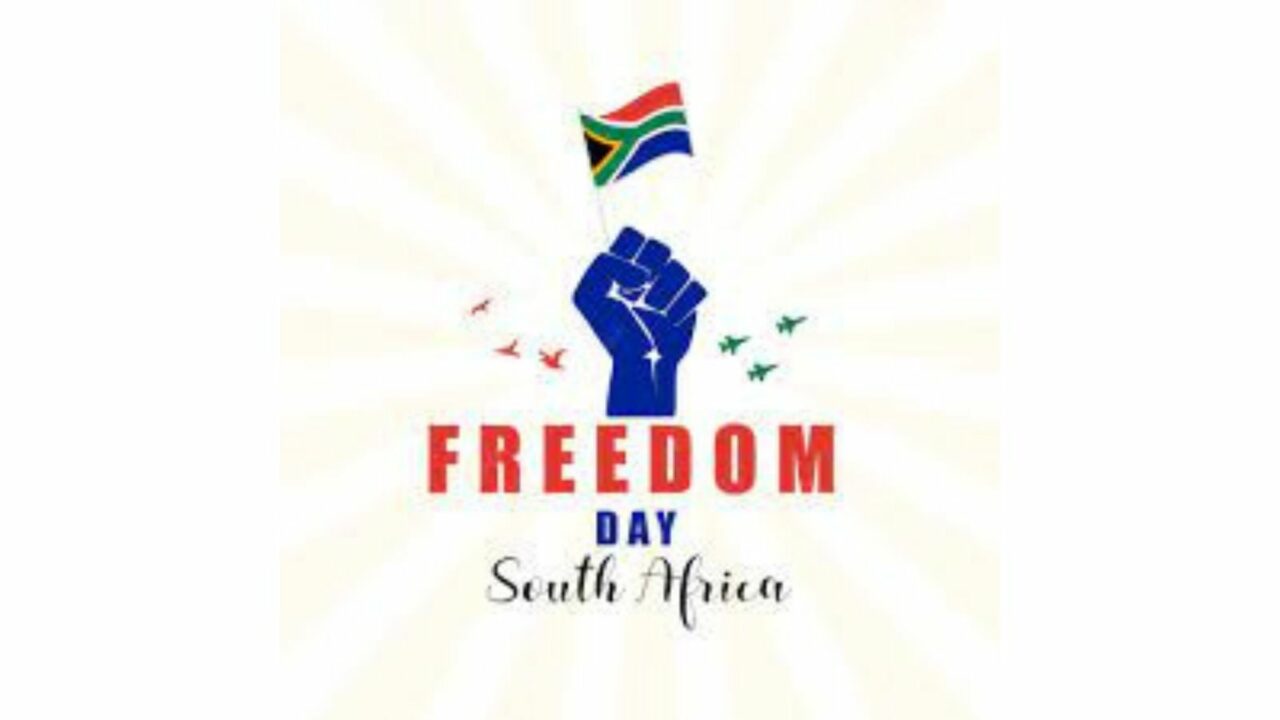Freedom Day (South Africa) 2023: Freedom Day is observed annually on April 27 in South Africa. This day reminds South Africans of the incalculable sacrifices made by individuals and nations in order to liberate them from the chains of discriminatory segregation imposed by a select few. It reminds them of their national icons, especially Nelson Mandela. He is regarded as a champion of liberty not only in South Africa, but around the globe. In 1994, this day not only commemorates the liberation of South Africans from apartheid, but also the restoration of their fundamental human rights.
HISTORY OF FREEDOM DAY (SOUTH AFRICA)
After decades of segregation were abolished in South Africa, Freedom Day was celebrated on April 27, 1994 with a multiracial election. The few Whites in power at the time denied black South Africans fundamental human rights and privileges. The 27th of April became thereafter a symbol of liberation for South Africans. In addition, it honours the efforts of national icons such as Nelson Mandela. Mandela’s efforts and sacrifices, along with those of other crucial figures such as Desmond Tutu and many others, brought South Africans long-denied freedom to their land.
Between 1948 and 1994, apartheid was a racial system in South Africa that separated the ethnicities. During this time period, the white minority was so dominant that black majorities in their homeland were overshadowed. In virtually every aspect of existence, segregation systems were enforced. For instance, interracial friendships and marriage were prohibited. Blacks were denied access to the vast majority of social amenities. They were prohibited from living in areas specifically designated for Whites and from participating in national decision-making, including voting.
The statutes of apartheid divided South Africans into four categories: whites, blacks, coloured, and Indians. Whites were the only group to enjoy special privileges. The remainder were denied their most fundamental liberties. Between 1960 and 1983, over three million blacks were evicted from their residences. In the 1970s and 1980s, the opposition to the apartheid regime became militant. This resulted in crackdowns and incarceration of’rebels’ by the National Party government. In the late 1980s and early 1990s, the African National Congress (A.N.C.), the black people’s party, began negotiations with the government to end apartheid. In 1991, the regime began to decline, and in 1994, multiracial elections were conducted.
Richter Scale Day 2023: Date, History, Activities and Facts
World Burlesque Day 2023: Date, History, Activities and Facts
World Intellectual Property Day 2023: Date, History, Activities and Facts
HOW TO CELEBRATE INDEPENDENCE DAY (SOUTH AFRICA)
Visit places of distinction
Visiting significant locations from the struggle for freedom is a good way to commemorate the occasion. Mandela was confined as a political prisoner on Robben Island, which is an excellent illustration of such a location. In addition, there are museums and excursions of areas significant to the struggle against apartheid.
Savour the present
Freedom is the capacity to appreciate one’s rights and privileges without infringing upon those of others. Simply relax and relish the freedom you currently possess.
Watch films pertaining to adversity
The best way to gain an understanding of what transpired during the era of segregation is by viewing period films. The narrative of Whoopi Goldberg’s “Sarafina” contains several tales. “Invictus” tells the narrative of how sport brought the nation together following the first presidential election.
Richter Scale Day 2023: Date, History, Activities and Facts
5 FACTS ABOUT APARTHEID YOU SHOULD KNOW
Embargo on properties
Black South Africans were denied property possession.
opposed by a minority of whites
White Nobel laureates such as Helen Suzman, Colin Eglin, Harry Schwarz, and Nadine Gordimer, as well as numerous ordinary citizens, were all opposed to apartheid.
Segregation in education
No blacks or individuals of mixed race had access to the finest system of education for whites, which was reserved exclusively for them.
Rampant police misconduct
The police were brutal and even opened fire on Black South Africans, resulting in dozens of deaths and numerous injuries.
Passes required
Black South Africans were required to possess passes and passports to access certain facilities.
WHY FREEDOM DAY (SOUTH AFRICA) IS IMPORTANT
It eliminates injustice
On Freedom Day, the apartheid regime’s manifestly unjust and inhumane practises were eliminated. The power of such a day resides in not replicating past mistakes.
It remembers champions
It recognises the efforts of champions and freedom fighters who sacrificed their lives to liberate their people and also commemorates the white people who were also subjected to an unjust and brutal system with which they disagreed. This allows individuals of different races to shake hands and appreciate one another.
It’s unifying
On Freedom Day, all South Africans achieved equality. All citizens began to share love, compassion, resources, and other things equally, thereby uniting them under a single flag.
FREEDOM DAY (SOUTH AFRICA) DATES
| Year | Date | Day |
|---|---|---|
| 2023 | April 27 | Thursday |
| 2024 | April 27 | Saturday |
| 2025 | April 27 | Sunday |
| 2026 | April 27 | Monday |
| 2027 | April 27 | Tuesday |


















